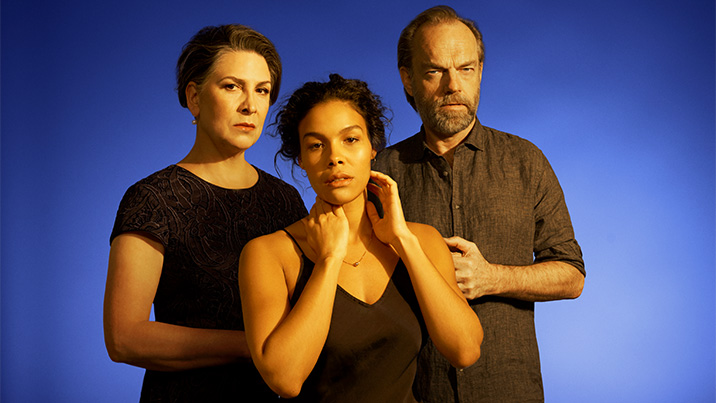‘Cat on a Hot Tin Roof’ is something you might never have heard if not for Tennessee Williams.
A southernism if ever there was one, one of the titan writer’s most beloved plays is replete with them, as it is it’s titular idiom; repeated no less than five times.
Famous for his lengthy if uniquely and ever-engrossing exposition, such is on display in ‘Cat’ foremost among Williams’ most famous plays, as is his well-known deployment of blatantly symbolic idioms or turns of phrase. What might seem a detraction conversely blends into by William’s deft hand that which gratifyingly persists as some of the most endearing drama of the past one hundred and fifty years.
Returning to a formula isn’t always advisable, yet Williams, famously transplanting his own terrible experiences into the bare narratives that constitute ‘Streetcar,’ ‘Suddenly Last Summer’ and ‘Cat,’ amongst others, has painted enduring pictures of human drama and pain more palpably rendered than arguably any of his contemporaries.
Seen no less in the escalating tensions and interactions between his few characters that in their complexity, breadth of suggestion and peculiarly uncommon idiosyncrasies devastatingly resonate with real life and to greater effect than whole canons that could otherwise be staged, it’s readily on display in the Sydney Theatre Company’s latest production.
Zahra Newman, playing Maggie ‘The Cat,’ in the show’s most consequential role is unabatedly transfixing. Pivoting between that piercing that must be reckoned with to moments of supreme comedy, an extended, early gag involving a drink sprayed across the stage is delivered with surpassing humour.
Harry Greenwood as Maggie’s husband Brick, an injured ex-athlete surrounded by his family and father’s palatial estate, ceaselessly goaded together with his wife to become a parent, doesn’t have nearly so much to do; a relatively passive player given the extent of his on stage role. Present throughout events and exhibiting a palpably tense forbearance, in his more dramatic turns, arrived at following stretches of what never registers as a three hour run, Greenwood likewise excels.
Hugo Weaving is reliably endearing as Big Daddy; a predictably welcome stage presence matched only by Newman’s output. Announcing his arrival with an obsequious cacophony that surpassed both the blasts that preceded it, the significance of his character and too even Weaving’s decision to appear therein, it is the staging and design, not the performances nor drama, that alone detracts from this production.
The blasts of fireworks pervading the southern manor enumerated by discordant, raucous noises and blaring, on occasion blinding lights adorning the entire backdrop, the effect(s) does not impart anything of that contemporary to Williams nor suggest anything discerningly modern nor impliedly universal. It is a needless, clamorous distraction transplanting us from the drama and in no way conducive to it’s ends.
The staging itself given Williams’ most detailed setting and the uncommon capacity of the theatre is surprisingly minimal, though excellent use is made of a slowly-dimming birthday cake and liquor cabinet. Lack of scenery is never an issue in and of itself, yet what is apparently an attempt to translate that both modern and universal about the play through a but impliedly contemporaneous and to the production’s universalistic ends intendedly minimalist setting leaves us with an uninteresting and in the context of this particular theatre distractingly over-encompassing backdrop looming over that confusedly both modern and decidedly of another time.
Williams plays, ‘Cat’ among them, endure for the simple reason that an uncommonly high number of dramatic beats, well rendered here, remain identifiably and innumerably relatable; of a time yet easily situated throughout the ages. Variedly patchy attempts to remind us this production’s more modern setting simply distract and loudly, needlessly clash with regular vernacular and indeed those now anachronistic references which pervades Williams’ drama; duly not updated in deference to the quality of the text.
The situations the characters find themselves in remain sadly relevant and by no means anachronistic without being updated. The additional props, predictable within a 1950s setting but in a contemporaneous setting invoking another era, too conversely and to straightforward effect impart that both modern and past. Williams’ impact is otherwise in that inseparable from a very defined setting necessarily reflective of his characters’ travails and as in every one of his plays but a backdrop; timeless and transplantable but necessarily established at the very outset so as not to distract by explanation and too render itself immediately relatable.
Choosing to stage this play contemporaneously is not an issue, far from it; yet in the absence of a staging and design either recognisably modernistic (while necessarily reflective of both Williams’ time and ours), loyal to William’s own era or universal (if minimalistic) in a manner which overly relays that universal the play is simply confused and not as potent. Conspicuous turns to face the audience contrasted with that near ceaselessly evinced by the performers in a traditionally dramatic manner do not help; an advent fairly and frustratingly not absent from Williams’ other plays, ‘Sweet Bird of Youth’ among them, though not so tangible within the chosen text.
The remote, oft-nebulous staging effectively rendering the play interchangeably unto styles and ages, the creative direction does not recommend a universal nor modern reading unlike that so well-articulated by the performers, but simply confuses and distracts from what is otherwise but one of Williams’ colourful pictures unfaded by time.
4 Stars
Cat On A Hot Tin Roof is now playing at the Sydney Theatre Company
With
Addison Bourke, Tristan Bowes, Anthony Brandon Wong, Peter Carroll, Harry Greenwood, Emily Harriss, Jye McCallum, Josh McConville, Zahra Newman, Pamela Rabe, Holly Simon, Nikki Shiels, Lila Artemise Tapper, Arie Trajcevski, Hugo Weaving, Jerra Wright-Smith

